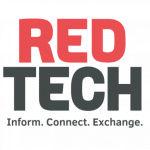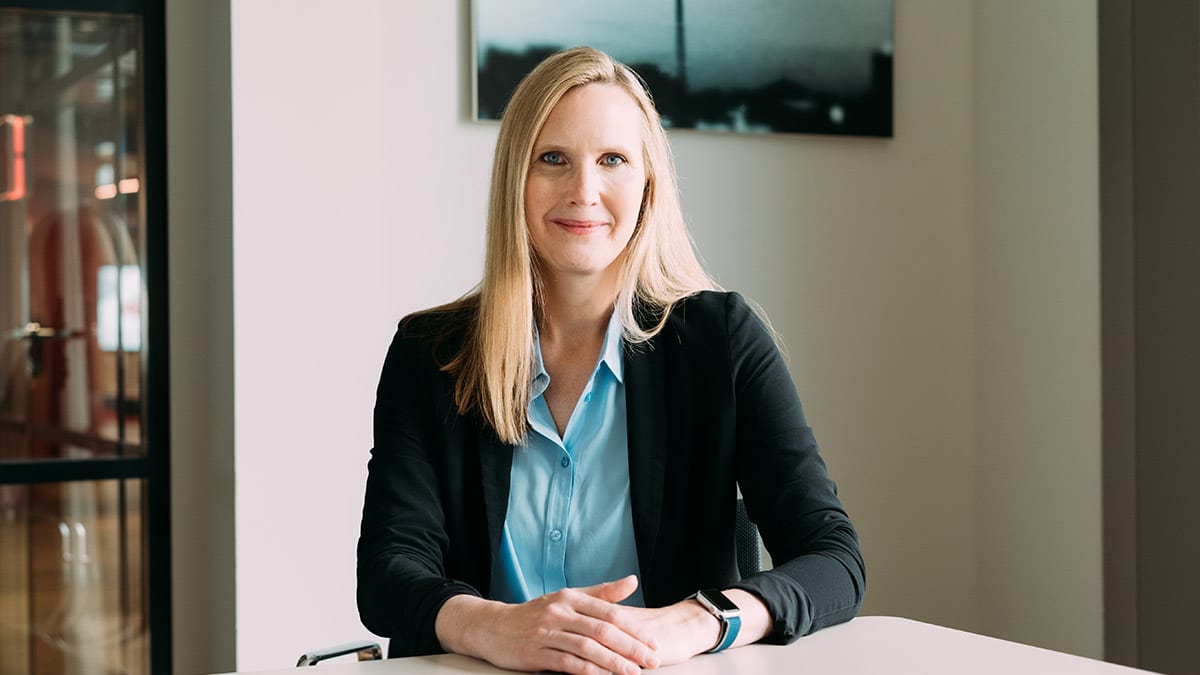Germany holds many lessons for other mature markets with strong state and commercial broadcasters. Nina Gerhardt, managing director of RTL Radio Deutschland since 2020, believes opportunities lie in the balancing act needed to meet the changing needs of the media consumer.
RedTech: Would you characterize the German radio market as very competitive, and how are you differentiating yourself to attract audience share?
Nina Gerhardt: Germany is a radio nation. People love audio content and have a wide range of services to choose from. The German radio market is, first and foremost, highly fragmented and largely made up of regional/local players.
For some years, there have also been national stations broadcasting via DAB+ and a growing range of digital products over IP. Within the respective markets, there is fierce competition between stations and between public and private broadcasting.
Berlin is the most competitive market, with some 30 FM stations. RTL’s radio family has its headquarters there, and operates the stations 104.6 RTL, 105’5 Spreeradio and JAM FM. Germany has over 450 terrestrial stations, many with multiple shareholders, and several radio groups like RTL with holdings in stations in various states across the country. As Germany’s largest broadcasting group, RTL’s audio brands operate locally, regionally and nationally. The group also enjoys success in the podcast market, with its own production company, Audio Alliance, and a podcast platform, AUDIO NOW.
RedTech: How has the health crisis impacted your operations? Has it sped up your transition to non-linear formats?
Gerhardt: As part of Germany’s critical infrastructure, radio responded very quickly, providing people with the latest news and background information on the crisis. This meant a high level of demand for our services — partly because radio is a companion people can rely on, and in times of crisis, there is a great need for information, as well as distraction.
That said, we also faced many challenges. Not only did we have to protect our employees and reorganize production and processes, but the pandemic also significantly impacted the advertising market. Private radio in Germany is almost entirely reliant on advertising revenue, and at the start of the pandemic, revenues declined dramatically. While earnings have stabilized, the structural impacts are still being felt, especially in the regional advertising markets, because of the closure of shops or delivery bottlenecks.
The pandemic and the other crises facing the world have highlighted the importance of a direct, up-to-the-minute mass medium like radio. Radio does a lot: It informs and entertains, and it’s this mix that makes it so valuable to people. But we’re also seeing changes to listening habits. New habits and routines that arose during lockdown — people getting up later or fewer car journeys to the office — are inevitably leading to a change in radio consumption.
RedTech: Online audio, both streaming and on-demand audio, is booming. How is RTL Radio sustaining its audience loyalty and advertising support as competition from other platforms intensifies?
Gerhardt: Online audio is a key to our strategy. We know people love curated online music services, and the podcast boom shows no signs of dying down. Audio content will remain popular, but people are increasingly demanding not only the live experience, but an ability to access content at a time and in a place of their choice. So, we’re pursuing a multi-pronged platform strategy. On the one hand, we’re creating our own platforms where people can listen to our content in our cosmos. On the other hand, we also must be wherever else they access that content — smart speakers, aggregators, in-car entertainment systems, and so on.
RedTech: What’s happening to time spent listening in the radio market in Germany and how are you reimagining your radio stations to grow your share of this TSL?
Germany is a radio nation. People love audio content and have a wide range of services to choose from.
Gerhardt: TSL remains consistently high in Germany. Daily reach for the over-14s stands at 73.9% in 2022. Overall, listeners are getting older. While younger age groups still enjoy listening to the radio, they generally do so less and for shorter periods — a trend we expect to continue. The main reason for this is the huge variety of media on offer — younger people spend their time on other services such as social media, video streaming or gaming. Our goal is to be a leader in our respective markets, regardless of trends in user numbers. We continue to see great potential for national and supraregional brands, which is why RTL has been operating various national stations on DAB+ for the past year and a half. We’re also focusing on digital station brands and audio products, leveraging our extensive expertise and developing new services. But we’re also seeing some positive developments, particularly with the stations in our portfolio, that appeal to a younger audience. Here, live radio is only one component of a digital content and brand world.
RedTech: If you had no budgetary constraints, what would you do at RTL Germany to ensure a thriving future for the business?
Gerhardt: That’s a good question. First and foremost, of course, we would invest even more in our stations and the people behind them. We want to retain the best radio talent, and quality, quite simply, pays off. But when it comes to data, technologies and overarching entities, the issues we currently face as a broadcaster can’t all be resolved by budget alone. Here we come up against the limits of the system — regulation and competition.
RedTech: Is there a future for music radio in the face of competition from Spotify and various other music streaming services and OTT players?
Gerhardt: Yes. I see the relationship between radio and music streaming as “both/and” rather than a classic “either/or.” We’re very good at reaching people with music-based services that are right for them. For those who don’t want to listen to live radio, our stations still offer great music for every mood and occasion. “Lean back” listening will also remain a popular way to consume music. That’s something that radio has always been very good at. And, fundamentally, the combination of words and music — as found in traditional format radio in Germany — is an important component of people’s media preferences. Music streaming providers are also upping their game here by mixing their podcast offerings with music. All in all, competition for attention is increasing, and the variety of content and services on offer is growing.
I see the relationship between radio and music streaming as “both/and” rather than a classic “either/or.”
RedTech: What is the attitude of advertisers in Germany to radio as a medium? How do advertisers know they are getting results with their radio advertising?
Gerhardt: Radio advertising is hugely effective. Radio is very strong on sales and delivers measurable and, above all, very quick wins for our customers. The medium galvanizes people and gets them into shops and services. The personal touch that presenters have creates an extremely high level of trust, which has a positive impact on every advertisement and its ability to influence listeners.
RedTech: How is RTL Germany responding to the scrutiny that media companies are under from governments and regulators about data privacy?
Gerhardt: Regulatory developments are problematic here and pose big challenges for us and all other media providers, except for the tech giants.
It’s now almost impossible for a medium-sized company to generate the amount of data that could be useful for further developing its products and sales while remaining legally compliant. That makes overarching technologies and systems for legally compliant data collection and use even more important. We’re working on this, and the RTL Radio Group has a strategic advantage here through being part of a large media group.
RedTech: Is your network using the cloud to manage its operations, or is most of the content and information held on-site, and how are you protecting your IT operations in terms of cybersecurity?
Gerhardt: We use both the cloud and our own storage resources, depending on what is possible and expedient. We’re protecting ourselves in a variety of ways. Regular awareness training and process and system optimization are key. We’ve long understood that we must deal with this on an ongoing basis and as a matter of priority, and we are in the fortunate position of being able to draw on the group’s resources in this context as well.
RedTech: What other major trends are impacting the radio industry?
Gerhardt: You mentioned the importance of regulation in relation to data. In fact, regional, national and European legislation and its implementation have a much broader impact on our business. For example, since private radio in Germany is financed mainly by advertising revenue, additional restrictions and prohibitions on advertising, which are regularly discussed, jeopardize our financial basis. Also, at the European level, radio market players must continue to ensure that their services have access to the platforms of large technology providers and that users can find them there on a non-discriminatory basis.

